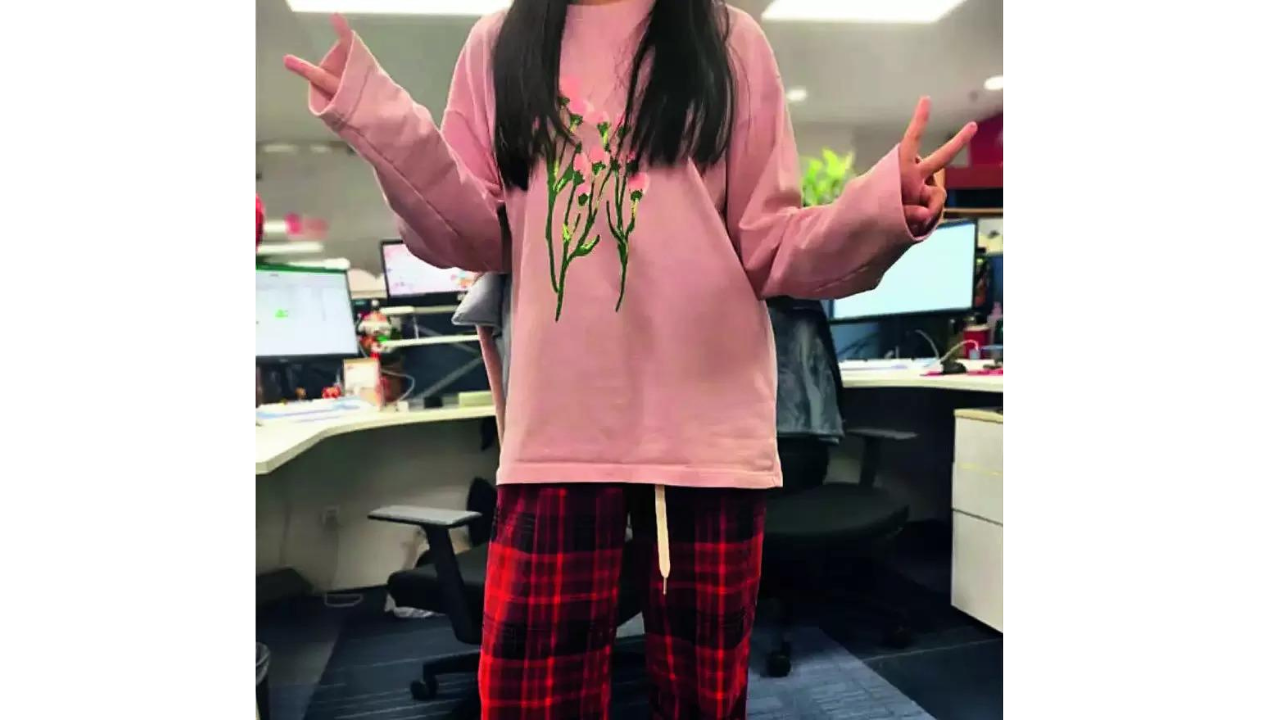Furry slippers and sweatpants: Young Chinese embrace ‘gross outfits’ at work – Times of India

[ad_1]
A few months later, she posted photos of herself to a “gross outfits at work” thread that had spread on Xiaohongshu, a Chinese app similar to Instagram.She was one of tens of thousands of young workers in China to proudly post pictures of themselves showing up at the office in onesies, sweatpants and sandals with socks. The just-rolled-out-of-bed look was shockingly casual for most Chinese workplaces. “I just don’t think it’s worth spending money to dress up for work, since I’m just sitting there,” said Luo, 30, an interior designer in Wuhan.
Defying expectations for proper work attire reflects a growing aversion among China’s youth to a life of ambition and striving that marked the past few decades. As the country’s growth slows, many young people are choosing instead to “lie flat”, a countercultural approach to seeking an easy and uncomplicated life. And now even those with steady jobs are staging a quiet protest.
The intentionally lackluster outfits became a social media movement when a user named “Kendou S-” posted a video last month on Douyin, the Chinese sibling service of TikTok. She showed off her work outfit: a fluffy brown sweater dress over plaid pajama pants with a pink, light-quilted jacket and furry slippers. In the video, she said that her supervisor at work told her several times that her outfits were “gross” and that she needed to wear better clothes “to mind the image of the company.” The video took off; it got over 735,000 likes and was shared 1.4 million times. The hashtag “gross outfits at work” spread across multiple Chinese social media platforms and it unleashed a competition of whose work dress was the most repulsive. On Weibo, the topic generated hundreds of millions of views and sparked a wider discussion about why young people are not willing to dress up for work nowadays.
People’s Daily, the Communist Party’s mouthpiece, criticised young people for “lying flat” in a 2022 editorial, but it has refrained from scolding youth for what it called “being ugly” at work. Xiao Xueping, a psychologist, said that might be because the outfits are a form of responsible protest as people are still doing their jobs.
